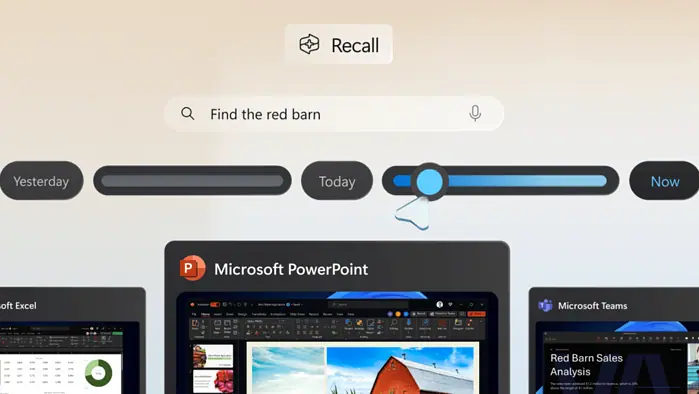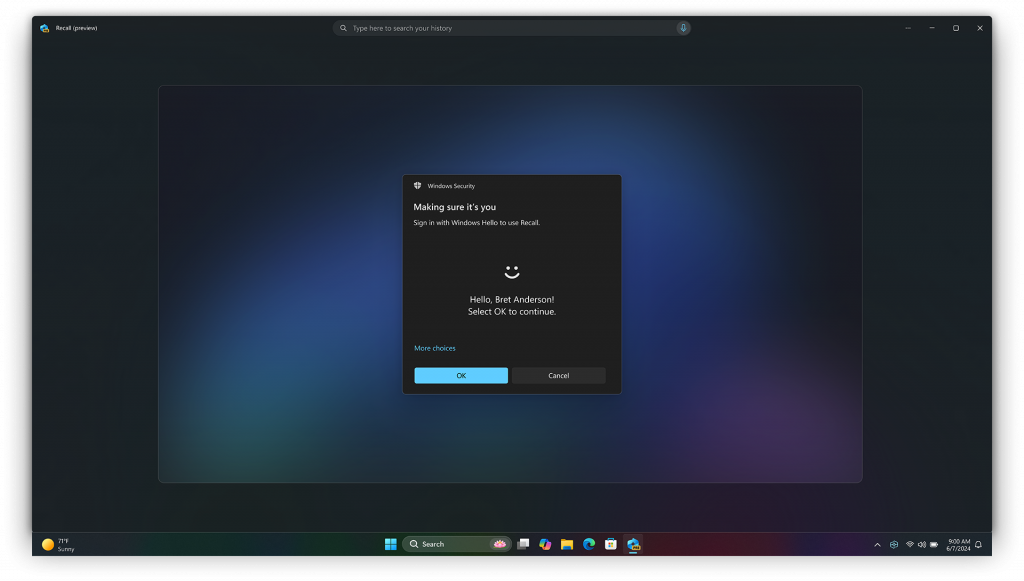After public backlash, Microsoft to offer Recall turned 'Off' by default
2 min. read
Updated on
Read our disclosure page to find out how can you help MSPoweruser sustain the editorial team Read more
Key notes
- Microsoft’s Recall feature for Copilot+ PCs will now be off by default due to privacy concerns.
- Users will need to explicitly opt-in to enable Recall and access additional security measures.
- Recall snapshots are stored locally and not shared with Microsoft or third parties.

Microsoft has announced changes to its controversial Recall feature for Copilot+ PCs after receiving public criticism. Recall is a new feature that allows users to find things they’ve previously seen on their PC by creating a visual timeline of snapshots. That means your PC will take screenshots very frequently, like in a span of seconds, regularly.
Previously, Recall was set to be turned on by default, but due to privacy concerns and public lash, Microsoft will now ship Copilot+ PCs with Recall off by default. Users will have to explicitly opt-in to enable the feature.
“First, we are updating the set-up experience of Copilot+ PCs to give people a clearer choice to opt-in to saving snapshots using Recall. If you don’t proactively choose to turn it on, it will be off by default.”

Microsoft is adding several new security measures to Recall. This includes requiring Windows Hello enrollment to enable Recall and “just in time” decryption protected by Windows Hello Enhanced Sign-in Security (ESS).
“Second, Windows Hello enrollment is required to enable Recall. In addition, proof of presence is also required to view your timeline and search in Recall.”
This means that Recall snapshots will only be decrypted and accessible when the user authenticates.
Microsoft is also emphasizing that Recall snapshots are stored locally on the device and are not shared with Microsoft or any third-party companies.
Users can also choose to exclude specific applications from being captured in snapshots and can delete their snapshots at any time. For enterprise customers, IT administrators will have the ability to disable Recall entirely on managed devices.
These changes come after Microsoft received criticism for not making Recall an opt-in feature from the beginning. By making Recall off by default and adding additional security measures, Microsoft is hoping to address privacy concerns and gain user trust for the new feature.
People are so against Recall that they created their own OpenRecall open-source project.
More here.









User forum
0 messages